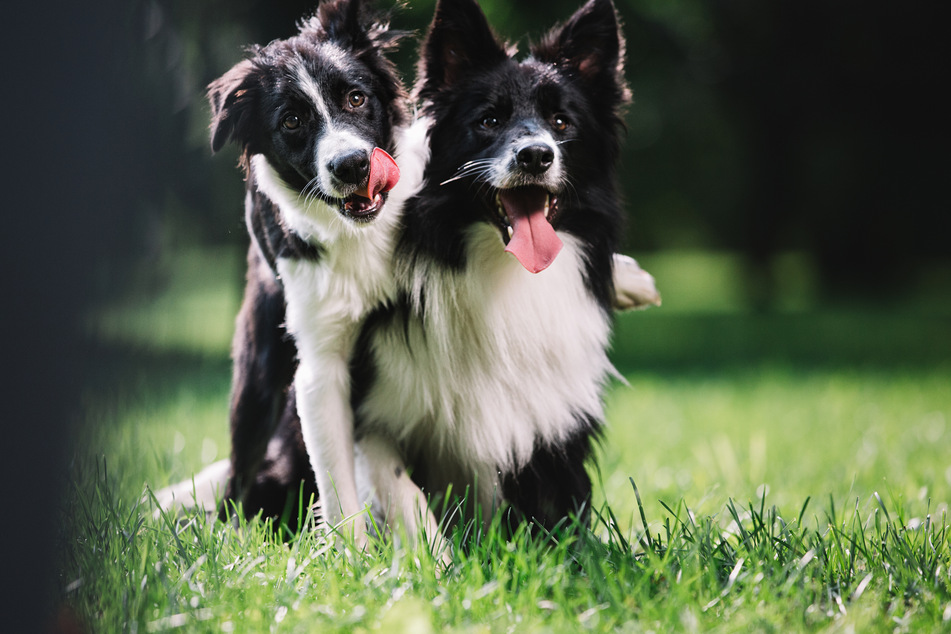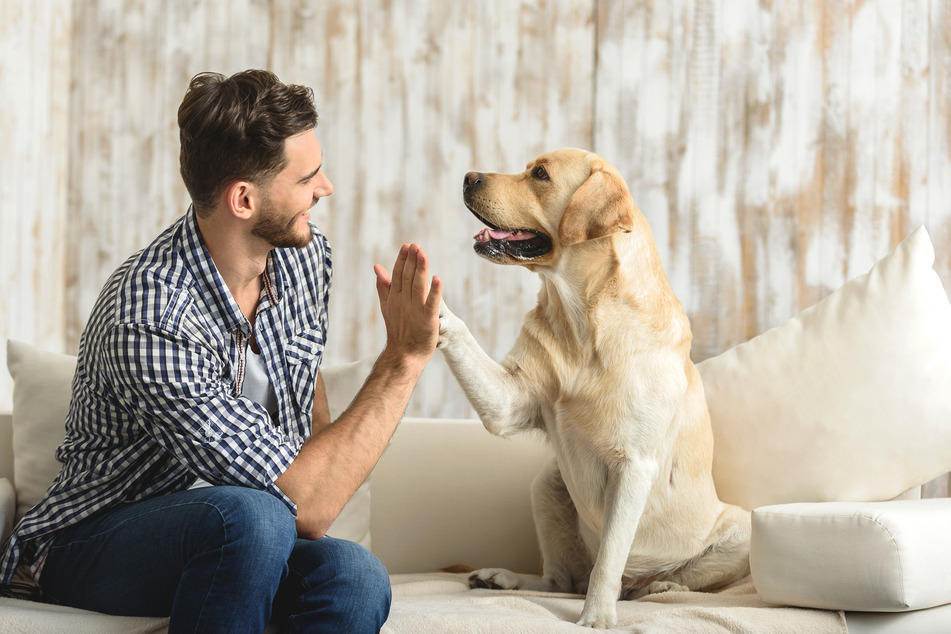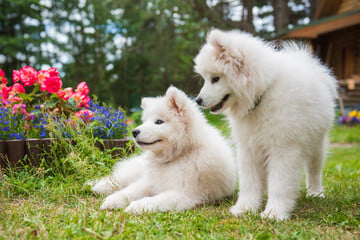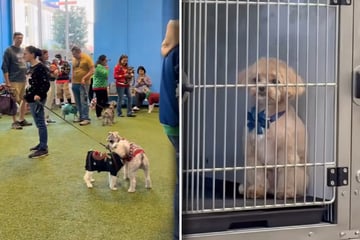Are dogs pack animals or loners?
Many people assume that dogs naturally live in packs and regularly need a lot of social contact to stay mentally and physically healthy. Is that actually true, though? Are dogs pack animals or loners at heart?

Every dog owner who has ever taken their exuberant hound to a kennel, out to the dog park, or just simply to another owner's house will have noticed how intensely these four-legged friends need to socialize. While it doesn't apply to every dog, of course, man's best friend needs its own best friend to survive happily and live a fully-fledged life.
Yet, are dogs really as sociable and in need of dog-on-dog contact as we all think they are, or are they loners at heart? Let's take you through a dog guide that'll help you discover whether dogs are truly pack animals, or loners.
Are dogs pack animals or loners?
Dogs are pack animals by nature and, as a result, require social interaction to maintain a balanced mental health. It is a bit more complicated, though, than a dog simply needing to be in constant contact with a group of dogs headed by an exuberant and strong leader who instills confidence in the pack. Instead, some doggos only require a single human to be happy.
The concept of a "lone wolf" has long been erroneous and easily discredited, yet it still gets used in common jargon, representing somebody who strikes out on their own, brave and a little bit wild. It's unfortunate that it's so commonly used, as it creates a false assumption that some dogs are willing to strike out on their own.
Most dogs need some sort of "pack," whether that takes the form of regular interactions with a couple of different humans or coexisting within a group of dogs on a permanent or occasional basis. As any dog owner would know, these fluffy little dudes like to play and get very excited when socializing, and there are very few doggos who can go for long periods without such interactions.
After all, the first social contacts a dog builds are within a pack, the litter into which they are born. Their mother and siblings develop a deep bond that has to be broken upon adoption, and, as such, that bond often extends onto the human that adopts them, creating a new "head of the pack."
This is why your dog is so devoted to you - you are the head of their pack, and they need to both protect you and obey you. All of this is based on an internalized social conscience that most dogs will learn as a puppy. As a result, the formative time they spend with their mother and siblings is crucially important.
To make complicated matters simple, dogs are certainly sociable animals, but in many cases, they will only need social contact with their owner or owners to be happy. All dogs should still have occasional interactions with other dogs, but they don't need a full pack to be happy.

Dogs are not all pack animals
While all dogs crave social interaction, not every dog requires regular and prolonged time spent with other canine companions. So, if you're worried that your dog is going to get lonely because you haven't taken it to the dog park in a while, try not to be too concerned.
Your four-legged friend likely gets enough attention and love from its humans to satisfy its need for social interaction. As a result, even a lone dog on a farm with nobody but its humans around can still be perfectly happy. Of course, socializing your dog is still great and can be hugely beneficial, but it's not necessary.
The focus of a dog owner should be on observing their pet's needs and desires. If someone's puppy seems dreadfully unhappy without doggy friends, then maybe more socializing should be introduced. In the case that the opposite happens and the dog suffers from anxiety in social situations, maybe that handsome hound should be allowed some alone time with its humans.
Make sure that your dog is well-trained from a young age, has learned as many words and commands as possible, and is ready to socialize with other doggos before you throw it into the deep end. It's also important that all dogs are happy and safe in these situations.
How do I give my dog an appropriate social life?

While not entirely necessary, it is still great if you can strike a balance between alone time, human interaction, and time with other dogs. Of course, make sure that your dog is neutered and vaccinated before bringing it into contact with other canine companions (for both your dog's safety and the safety of the other dogs), but try not to leave it too long between play sessions.
Depending on the breed, age, sex, and social behavior of your dog, it will need a different amount of stimulus. Some dogs will enjoy seeing their buddies a couple of times a week, while others will prefer to make it once a week or even two times a month. A few dogs will simply not want any interactions with other pups.
The most important contact a dog has is with its human caregiver, and, as a result, this should always be the priority. Figure out a work-life balance that'll give you enough time to walk your dog at least twice a day and will guarantee that you are not leaving it alone for extended periods of time.
As long as your dog has enough social contact with you and other dogs, even if the latter aspect is not as common as it optimally would be, your pup should remain happy and healthy.
Lonely dogs can be very unhappy
A lonely dog doesn't just have to be a dog suffering from separation anxiety. While it's a very real risk and a very real danger to a dog's health, dogs can also suffer because they lack a dog-on-dog social life. Our canine companions love us and want to be with us all the time, sure, but it's important that we identify if doggy play time is what our dog needs or not.
It's important to recognize that lonely and unhappy dogs can start to develop serious mental health issues, which can then cause behavioral problems. In such a situation, go to your vet and follow their guidance.
Cover photo: 123rf/fergregory




